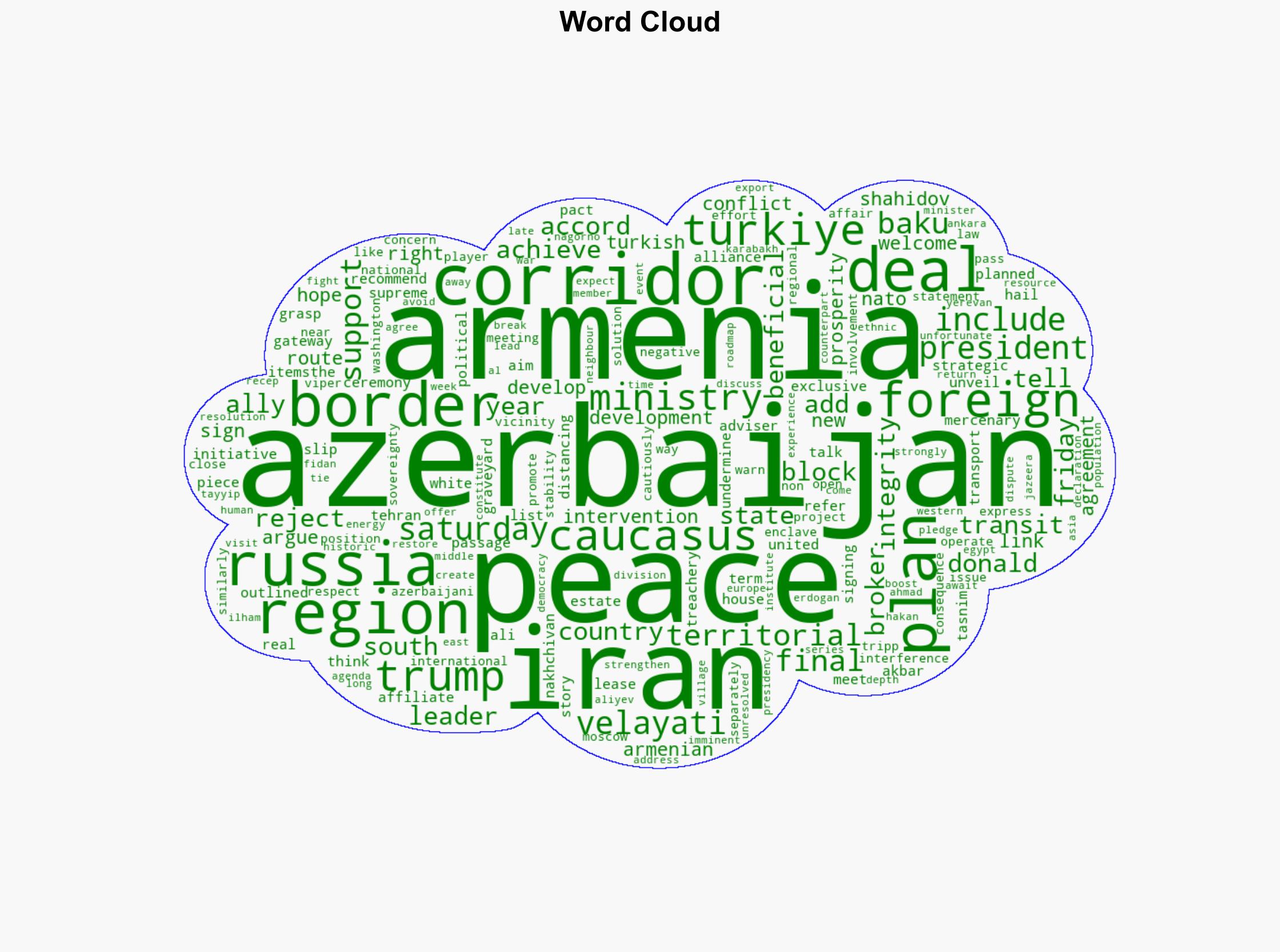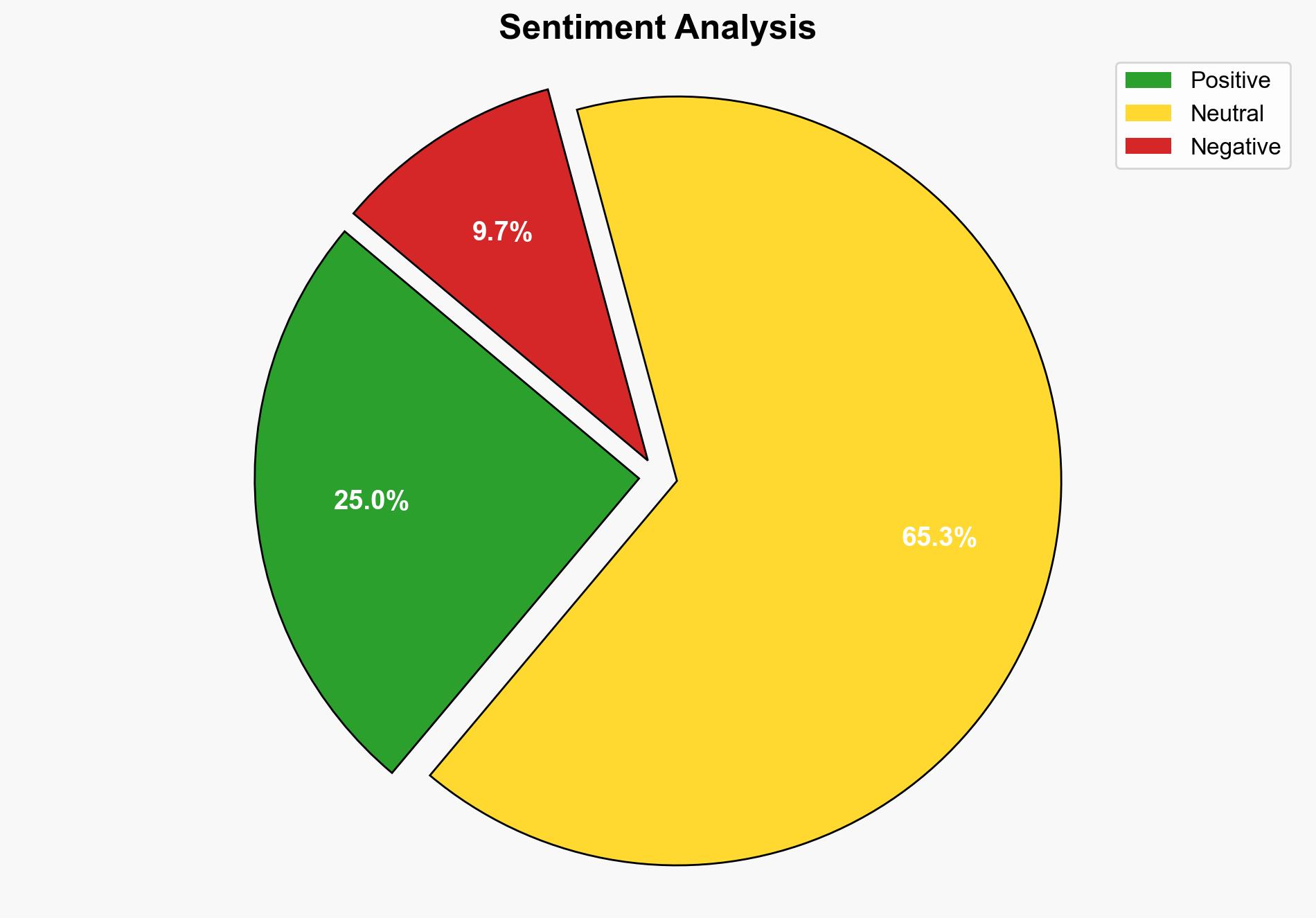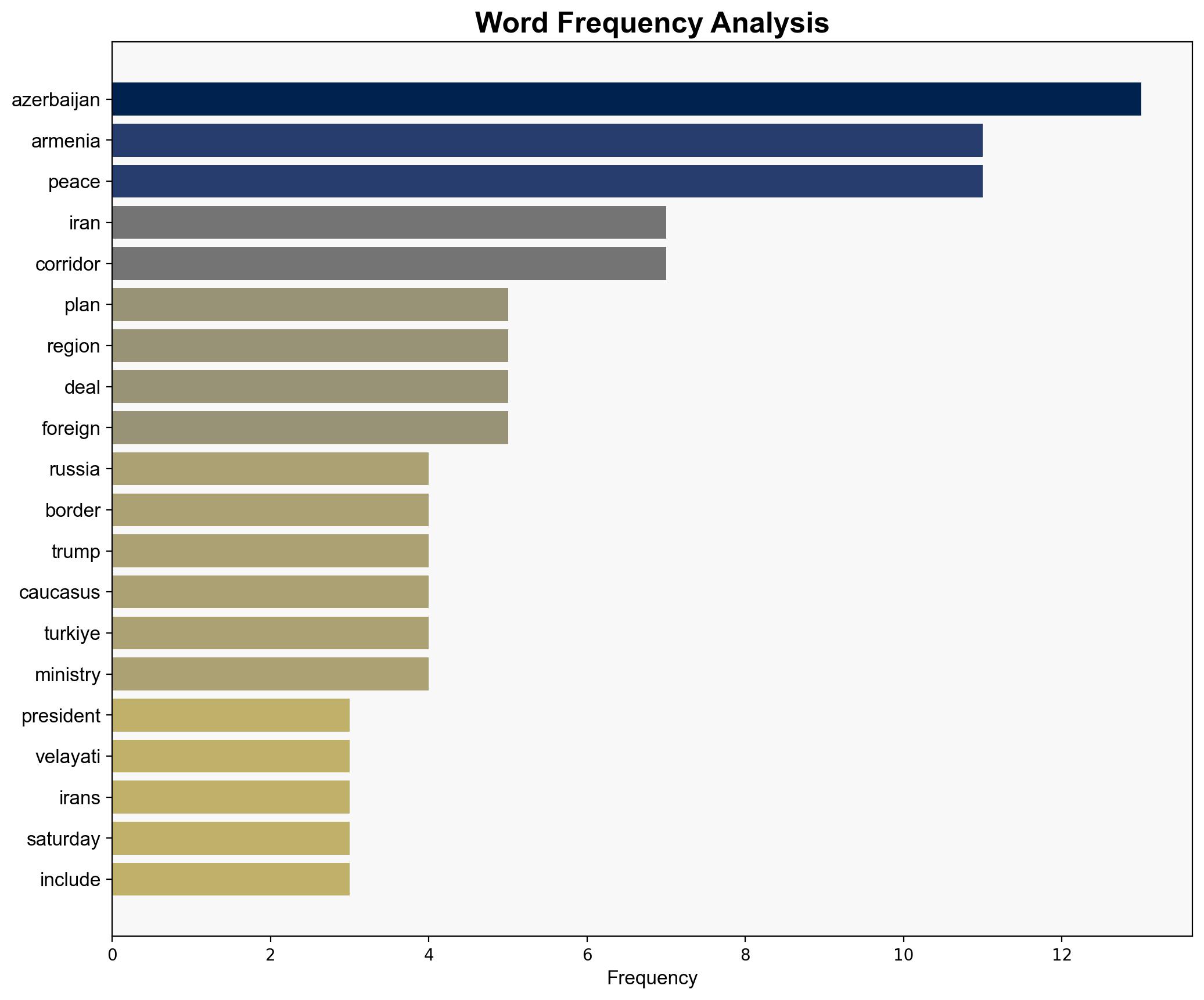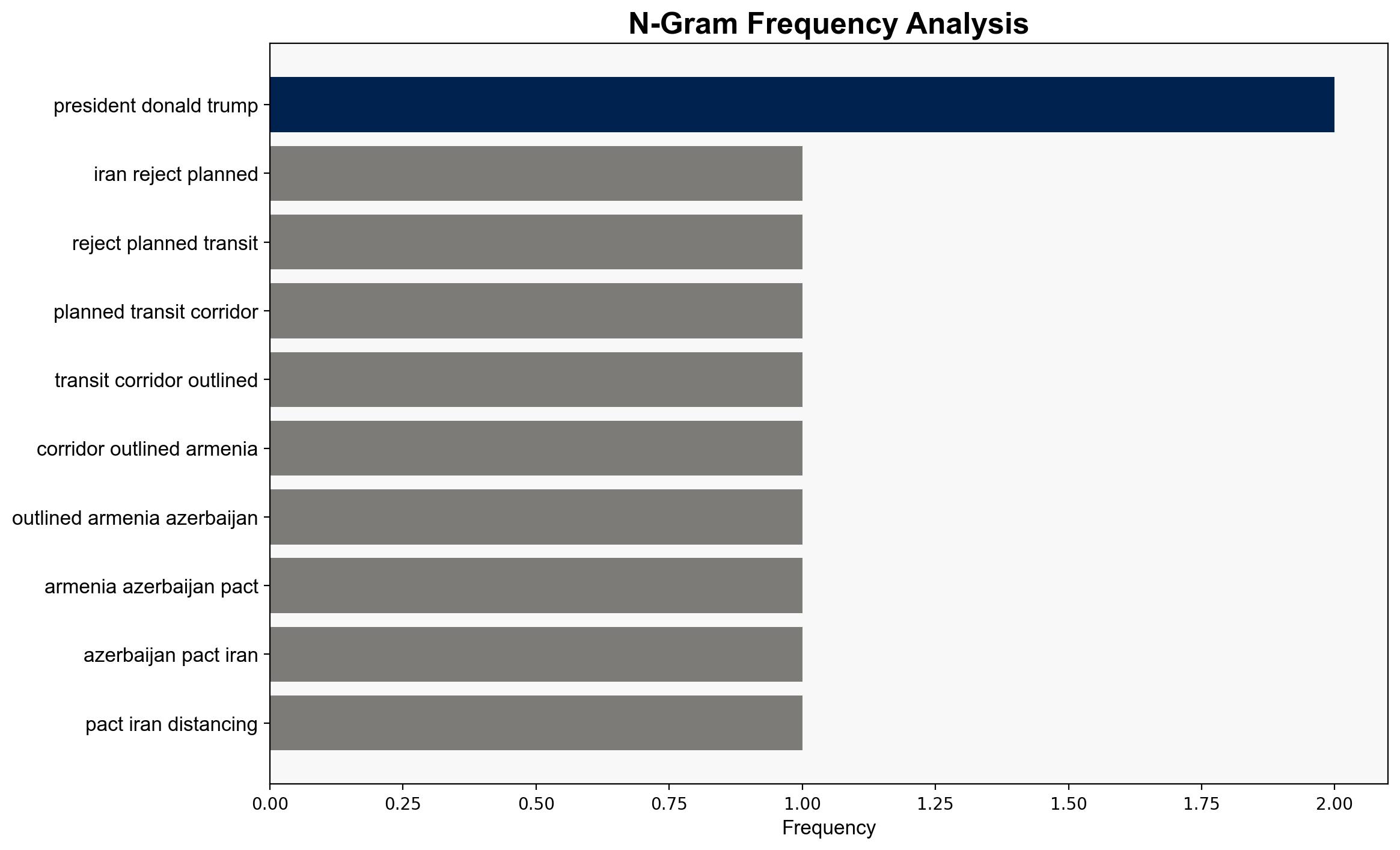Iran rejects planned transit corridor outlined in Armenia-Azerbaijan pact – Al Jazeera English
Published on: 2025-08-09
Intelligence Report: Iran rejects planned transit corridor outlined in Armenia-Azerbaijan pact – Al Jazeera English
1. BLUF (Bottom Line Up Front)
Iran’s rejection of the Armenia-Azerbaijan transit corridor, brokered by the United States, highlights geopolitical tensions in the South Caucasus. The most supported hypothesis suggests Iran’s stance is driven by strategic interests to maintain regional influence and counter perceived threats from Western involvement. Confidence level: Moderate. Recommended action: Monitor regional alliances and prepare diplomatic engagements to address potential escalations.
2. Competing Hypotheses
1. **Hypothesis A**: Iran’s rejection is primarily motivated by a desire to maintain its strategic alliance with Russia and counter Western influence in the region. Iran perceives the corridor as a threat to its regional dominance and a potential NATO foothold near its borders.
2. **Hypothesis B**: Iran’s stance is driven by genuine concerns over national sovereignty and territorial integrity, fearing that the corridor could destabilize the region and lead to increased foreign intervention, which could undermine Iran’s security interests.
Using ACH 2.0, Hypothesis A is better supported due to Iran’s historical alignment with Russia and its consistent opposition to Western influence in regional geopolitics.
3. Key Assumptions and Red Flags
– **Assumptions**: Hypothesis A assumes Iran’s actions are primarily strategic rather than security-focused. Hypothesis B assumes Iran’s concerns are primarily about sovereignty and stability.
– **Red Flags**: Potential cognitive bias in interpreting Iran’s motivations solely through a geopolitical lens. Lack of direct evidence linking Iran’s rejection to explicit Russian influence.
– **Inconsistent Data**: Contradictory statements from Iranian officials regarding the benefits of regional peace versus opposition to the corridor.
4. Implications and Strategic Risks
– **Geopolitical**: Increased tensions between Iran and Western powers could lead to regional instability. Potential for Russia to leverage the situation to strengthen its influence in the South Caucasus.
– **Economic**: Disruption of potential trade routes could impact regional economies and energy exports.
– **Psychological**: Heightened nationalistic sentiments in Iran and Armenia could exacerbate tensions.
– **Escalation Scenarios**: Potential for military posturing or proxy conflicts if diplomatic solutions fail.
5. Recommendations and Outlook
- Engage in diplomatic dialogues with regional stakeholders to address security concerns and promote transparency.
- Monitor Russian and Turkish responses to the corridor rejection to anticipate shifts in regional alliances.
- Scenario Projections:
- Best: Diplomatic resolution leading to a revised corridor agreement with regional buy-in.
- Worst: Escalation into military conflict involving regional and external powers.
- Most Likely: Prolonged diplomatic standoff with intermittent negotiations.
6. Key Individuals and Entities
– Ali Akbar Velayati
– Donald Trump
– Recep Tayyip Erdogan
– Ilham Aliyev
– Ahmad Shahidov
7. Thematic Tags
national security threats, regional focus, geopolitical strategy, diplomatic relations





